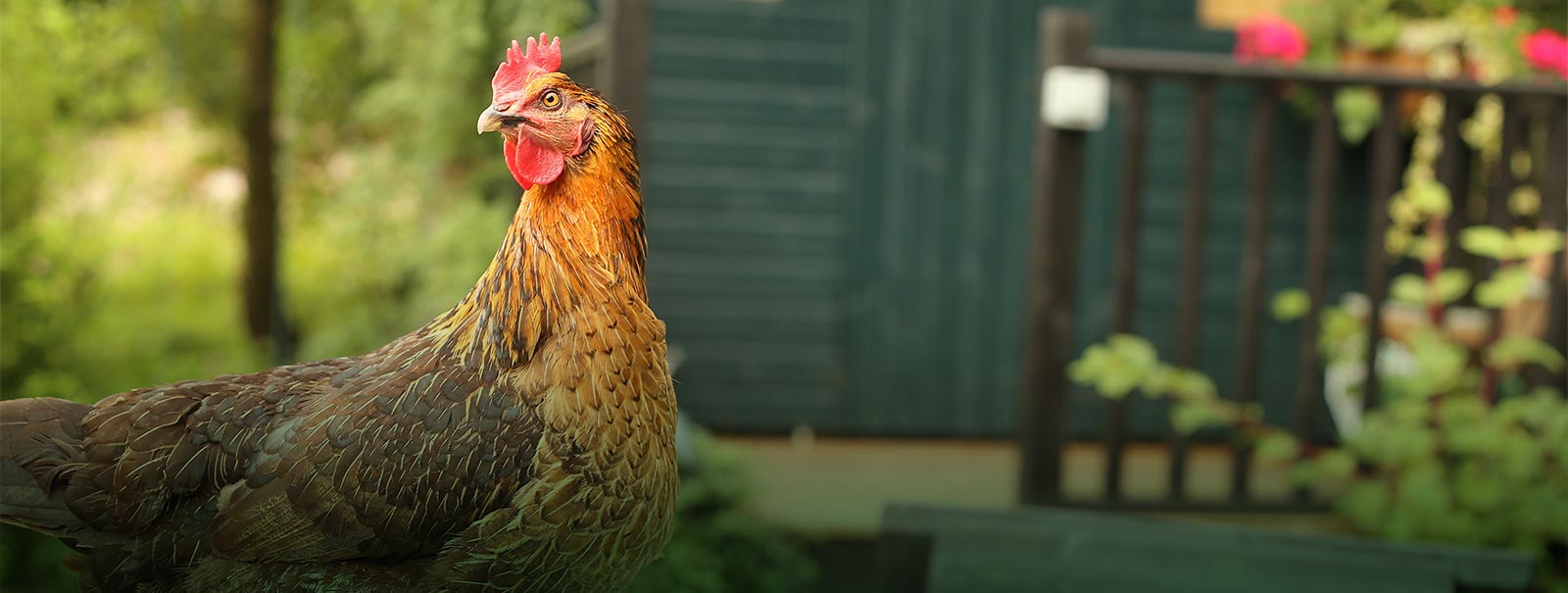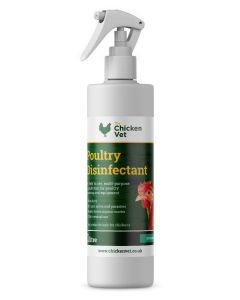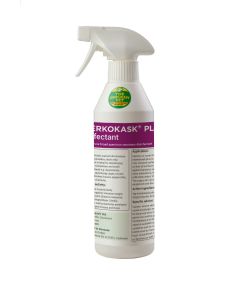
The advice hub Worms in Chickens
We are all familiar of the harmful effects of worms on pets and farm animals but what about their effect on our birds?
Worms affecting chickens can be largely divided into two groups; the first are the more common gastrointestinal worms which live in the bird’s guts and the second is the ‘gape worm’ which lives in the bird’s trachea (windpipe).

There are four species of worms which can be found in the gastrointestinal tract of chickens;
- Ascaridia
- Capillaria
- Heterakis
- Tapeworms

Ascaridia (round worm) is the largest worm in chickens (up to 7cm long) and lives in the small intestine. The juvenile worm burrows into the gut wall resulting in damage and inflammation reducing the absorption of nutrients, causing loss of condition, diarrhoea, anaemia (pale combs and wattles) and reduced egg production.
Capillaria also known as the ‘hairworm’ is the smallest and most dangerous of these worms especially when present in large numbers. Approximately 1.5cm long, they use earth worms as part of their life cycle. Hairworms typically cause diarrhoea, anaemia and the birds can look unwell, hunched and dull.
Heterakis gallinarum also called the ‘caecal worm’ is found in the caecum of chickens. It is usually relatively harmless; however it can carry a disease called black head which normally affects turkeys and occasionally chickens and pea fowl.
Tapeworms rarely affect chickens or cause problems. However they can occur and if you are concerned your chicken has tapeworm then you should seek veterinary advice.
Other worms
Syngamustrachea, more commonly known as ‘gape worm’, live in the bird’s trachea causing them to gasp, shake their head and stretch their neck. Because of its dramatic clinical signs, gape worms are the most well-known of the worms affecting chickens although they are mostly seen in pheasants. They are transmitted via snails and earthworms.
Control of worms
- Site history – has it been used for keeping chickens for a period of time.
- Move free ranging birds onto fresh pasture to minimise worm burden.
- Regularly test faeces to determine whether your birds need worming - you can use the Chicken Vet Faeces Sample Kits for this.
- Routinely worm your birds with a licenced wormer.
- Disinfect sheds with Chicken Vet Poultry Disinfectant or Interkokask which destroys worm eggs.
- Replace dirty bedding regularly and use gravel in wet areas to improve drainage. Completely remove this once a year and replace, this will help keep down the inevitable build-up of worm eggs.
Blackhead
Blackhead is caused by a tiny parasite called Histomonas meleagridis which is usually carried by the caecal worm ‘Heterakis’. Once a bird is infected with blackhead the parasite causes ulcers to form in the caecum/blind gut and liver damage. Symptoms are:
- Bright yellow diarrhoea.
- Dullness.
- Sudden death.
- Purple/black head including comb and wattles although this rarely shows.


Treatment
Some antibiotics can help affected birds and if you are concerned about blackhead in your chickens, talk to your vet.
Keeping your birds on fresh ground or rotating the areas they use will reduce the incidence of this disease.
Always worm infected flocks with a licenced wormer.to destroy the Heterakis worm.
Prevention
Blackhead can infect chickens, pea fowl and turkeys though the latter seem to be especially susceptible. For this reason turkeys should never be kept with chickens nor should turkeys be kept on ground on which chickens have used.
Keep your flock routinely wormed with a licenced wormer. every three months.




